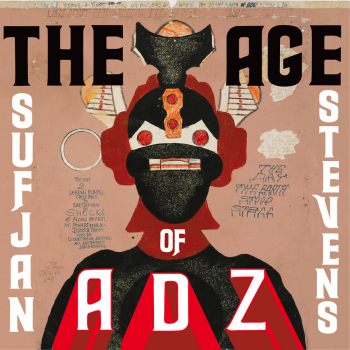 Body Talk
Body Talk(2010)
Robyn
At last, it is here.
At the beginning of 2010, Swedish avante-pop star Robyn announced that she would be releasing three albums over the course of the year. It had been five years since she released the kooky masterpiece Robyn, and she was ready to flush out the vaults. The albums, titled Body Talk Pt.1, Pt.2 and Pt.3, would be staggered over five or six months, and each would be a mini-album. The nine songs on Body Talk, Pt.1 were released to general critical praise in June, and it was the pop album of the summer. Not, you know, for the greater population, but those of us who were "hip" to it spent the summer dancing away to "Dancing On My Own," one of the best pop songs to come out of the last ten years. No joke. Pt. 2 dropped in September, and if its eight offerings didn't quite hold up as well, it was still a great EP.
It was announced about a month ago that Body Talk would be the name of an album, cherry-picking the five best songs from each of the first two mini-albums, and adding five more. That Robyn actually did pick the five best from each of the previous portions was a miracle in its own right. When the songs she chose were confirmed, it was a case of the new songs making or breaking the album. Considering the modern pop album, where there are typically four singles, one or two ballads, and six or seven inoffensive fillers, an album with nine killer (and I mean killer) tracks and one arguable filler (I don't have strong levels of affection for "Love Kills," but it's enjoyable enough), this was already going to be better than most, and possibly great. She could only fuck up.
Body Talk runs at an impossibly fast, taught 61 minutes, and it's packed to the point of bursting with radio smashes. That is, of course, if they get played on the radio, which they may not. Robyn doesn't make album tracks, really. She's here to make singles, and the efficacy with which she accomplishes her task is dizzying. It should be this easy for everyone. Pop is a formula known for not taking risks, and if Robyn isn't as inventive as she was on her self-titled offering back in 2005, she's certainly not resting on her laurels.
Highlights are impossible. This album feels like a Best Of collection. I haven't heard an album this calculatedly perfect from start to finish in a long time. The only disappointment is the Max Martin-penned "Time Machine." Considering that Martin has regularly provided the standout pop songs of the last 15 years ("Baby, One More Time," "Everybody (Backstreet's Back)," "Show Me Love" for Robyn in her late-nineties incarnation, "Since U Been Gone"), "Time Machine"'s status as the second weakest track on the album is truly a disappointment. The momentum was in favour of it being a masterpiece. Ah, well.
Each of the Body parts has a standout track. The first album had "Dancing On My Own," which is, I reiterate, the best thing to happen to dance-pop in the last ten years. The second album had "U Should Know Better," which hearkened back to the quirky and experimental nature of Robyn. "Dancing On My Own" could have been released by any artist, which is often my problem with pop music, the lack of individuality. "U Should Know Better," which, by the way, featured a brilliant guest turn from Snoop Dogg, could only come from Robyn. I was ready for the next addition to the trinity to be "Time Machine," but it's "Call Your Girlfriend." The way the melody stretches on, "And the only way her heart will mend/is when she learns to love again", defies description. It's four minutes of utter dance-floor bliss.
In short, Robyn has unleashed a masterwork that balances her natural tendency towards the odd with an unflinching eye for massive pop hooks and choruses. That she manages to still sound like Robyn throughout is a tribute to her talent, and her willingness to explore complex emotions and situations within the idiom of the pop hit. This album won't make Robyn the biggest pop star on the planet. But it really should.







